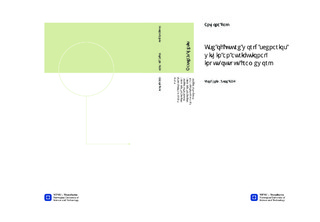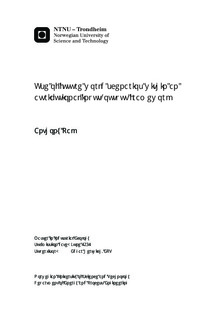| dc.contributor.advisor | Hertwich, Edgar | nb_NO |
| dc.contributor.author | Pak, Anthony | nb_NO |
| dc.date.accessioned | 2014-12-19T11:49:24Z | |
| dc.date.available | 2014-12-19T11:49:24Z | |
| dc.date.created | 2012-11-08 | nb_NO |
| dc.date.issued | 2012 | nb_NO |
| dc.identifier | 566469 | nb_NO |
| dc.identifier | ntnudaim:8387 | nb_NO |
| dc.identifier.uri | http://hdl.handle.net/11250/234872 | |
| dc.description.abstract | Background and contextGeneral and far reaching scenarios of possible futures for humanity's social metabolism have been put forth, outlining strikingly contrasting potential environmental prospects. Lifecycle assessment (LCA) and environmentally extended input-output (EEIO) the dominant methodologies for environmental assessment of production and consumption activities have been little used to analyse specific activities within these possible futures.Most LCAs and EEIOs are attributional and retrospective; they use past data with a central tendency approach to determine the impact of activities that are already embedded within a production-consumption system. On the other hand, so-called prospective-consequential LCAs analyse perturbations to a system, e.g. the introduction of new technologies or a change in consumption levels, and are therefore targeted at guiding decisions in the present and near-future. For large scale perturbations or more long-term decisions into the future, however, the consequential approach has been criticised as either losing transparency through complex modelling or relying overly much on ceteris paribus assumptions. It has recently been proposed that a prospective attributional approach to lifecycle studies could fill this void. Such an approach involves estimating the environmental impacts that can be attributed to the lifecycle of a future good or service embedded within exogenously defined scenarios of the future economy. Little has been done in this direction so far.Already in retrospective studies, the separate use of process-based LCA and EEIO has been criticised as leading to either truncated or heavily aggregated assessments. The advantages of using hybridizations of these two techniques seems even greater for prospective attributional analyses, considering how the EEIO framework is a robust vehicle for future economic scenarios. There is thus a need for further development in the direction of prospective attributional hybrid EEIO-LCAs. | nb_NO |
| dc.language | eng | nb_NO |
| dc.publisher | Institutt for energi- og prosessteknikk | nb_NO |
| dc.subject | ntnudaim:8387 | no_NO |
| dc.subject | MSINDECOL Industriell Økologi | no_NO |
| dc.subject | Environmental Systems Analysis | no_NO |
| dc.title | Use of future world scenarios within an attributional input-output framework | nb_NO |
| dc.type | Master thesis | nb_NO |
| dc.source.pagenumber | 89 | nb_NO |
| dc.contributor.department | Norges teknisk-naturvitenskapelige universitet, Fakultet for ingeniørvitenskap og teknologi, Institutt for energi- og prosessteknikk | nb_NO |

